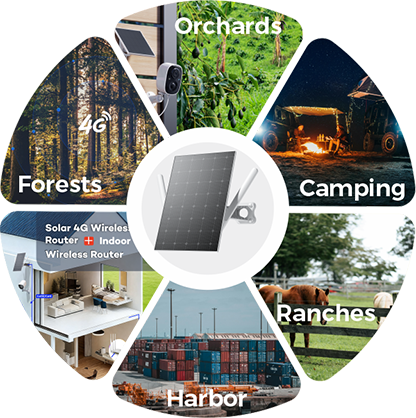|
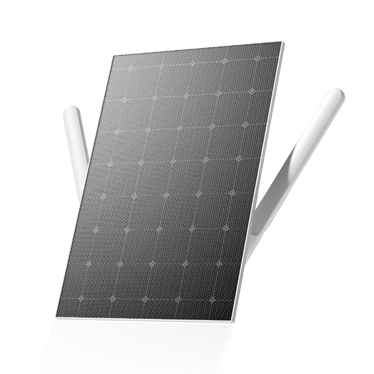
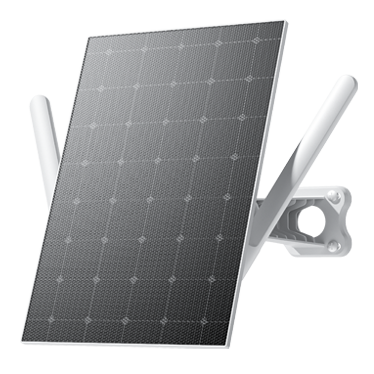
Solar 4G Wi-Fi Router
1 4G Indicator: Green indicates strong 4G signal strength; orange indicates moderate signal strength; red indicates low signal strength or no signal.
2 WiFi Indicator: Green and steady: WiFi hotspot is enabled; flashing: external device is connected to the 4G router.
3 4G Indicator: Green and steady: 4G network connection successful; off: no 4G network connection.
4 Ethernet Port Indicator: Green and steady indicates 100Mbps connection speed; yellow and steady indicates 10Mbps connection speed; flashing indicates data transmission; off indicates no connection.
5 Power Indicator: Green and steady indicates normal power supply; off indicates abnormal power supply.
6 Charging Indicator: When charger is connected, green indicates fully charged; red indicates charging in progress; off indicates not charging.
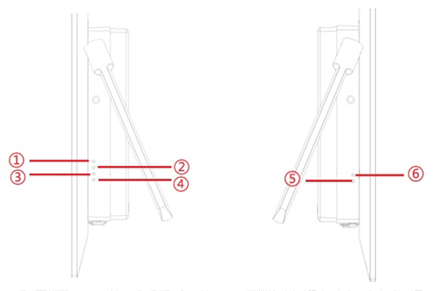
1 RJ45 Ethernet port for connecting network cables to enable wired external network access
2 Reset button: Press briefly to reset the device; press and hold for 6 seconds to restore factory default settings
3 Power switch: Slide left or right to power the device on or off
4 Type-C port for connecting solar panels or external chargers to power the device
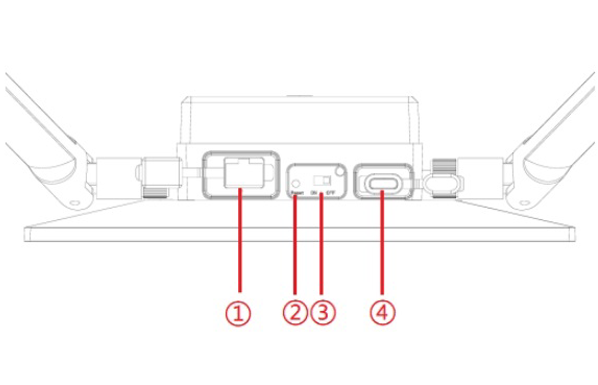
The FS-SWR4G is a solar-powered 4G router designed specifically for outdoor use, featuring a 10/100Mbps Ethernet port. It converts 4G signals into Wi-Fi and Ethernet signals, providing users with both wireless and wired network hotspot access. Maintenance and management are simple and convenient—just insert a SIM card to get started. The device includes a web management system supporting modifications to 4G network settings, Wi-Fi configurations, and blacklisting. Application scenarios encompass HD network camera data access, wireless AP connectivity, and 4G network deployment in villas, farms, orchards, docks, outdoor camping sites, and other areas lacking power or internet infrastructure—covering security surveillance and outdoor environments.
The FS-SWR4G is internally powered by a battery pack consisting of 6 pieces of 18650 batteries connected in parallel, providing a maximum capacity of 21,000mAh for extending runtime. The charging port supports both Type-C fast charging and 5V solar panel charging, enabling continuous power supply in outdoor locations without electricity to ensure uninterrupted Wi-Fi operation.
The FS-SWR4G features a 10/100Mbps auto-negotiating Ethernet port for wired connectivity. This port supports auto-negotiation protocols, enabling optimal speed transmission via Cat5/Cat5e/Cat6/Cat6e cables connected to the RJ45 port, effectively addressing WiFi signal interference issues. It also supports MDI/MDIX auto-detection, automatically identifying the connection type of any Ethernet device without requiring specialized straight-through or crossover cables.
For outdoor environments, the FS-SWR4G features enhanced surge and electrostatic protections (Type-C port: 6KV, RJ45 port: 4KV) and meets IP66 waterproof standards, ensuring reliable operation in harsh outdoor conditions.


1. Cat5e, Cat6, or Cat7 cable
2. RJ-45 connectors
3. Crimping tool
4. Wire stripper or Knife
1) We recommend stripping at least half an inch of the cable to expose the inner wires.
2) Separate the wires within the cable after the network cable jacket has been removed so that they can be put into the RJ-45 connector.
3) The CAT5 twisted-pair cable consists of four twisted wires, each color coded; 8 wires must be correctly lined as the standards of EIA/TIA 568A or EIA/TIA 568B.
4) Cut thread residue and leave 1.5cm wire exposed outside the insulating layer and ensure 8 wires are straighten and neat.
5) Place the cable into the RJ-45 connector and then use the crimping tool to attach the connector.
6) Repeat above steps for the other end of the cable; the wire sequence of both ends of the cable is suggested to be identical.
7) Make sure to test the cables before installing them once both ends of the cable have been completed.
Note:
1. All RJ-45 Ports of this device support Auto MDI/MDIX, so the different wire sequence of both ends of the cable is allowed.
2. Up to two units can be cascaded.
Package Contents
1)FS-SWR4G Unit: 1 2) 4G Antenna: 1
3)Solar Panel: 1 4) 2.4G WIFI Antenna: 1
5)Rotating Bracket: 1 6) M3 * 5 Cross Pan Head Screw: 1
7) M6 * 8 Cross Pan Head Screw: 4
Step 1: Open the router casing and insert a SIM card. Only one SIM card is required for network connectivity. If two SIM cards are inserted, the device will default to using the NANO SIM card (mini slot) for internet access. When the current network connection is lost, it will automatically switch to the other SIM card for connectivity.
Step 2: Insert 6 x 18650 batteries. Ensure all batteries are inserted with their positive and negative terminals aligned with the device's marked polarity. Failure to do so may cause battery overheating or even fire hazards!
Step 3: Turn on the power switch. Wait about ten seconds. When the 4G signal strength indicator lights up, it means the product has started normally. Green indicates strong 4G signal, Orange indicates average signal, Red indicates weak or no signal.
Step 4: Default WIFI hotspot name: 4G_MIFI_XXXX (XXXX is a combination of numbers and letters, e.g., 4G_MIFI_3F26). Default password: 12345678. For a wireless connection, search for Wi-Fi networks on your device, select the correct network name, enter the password, and connect. For a wired connection, simply plug one end of an Ethernet cable into your device and the other end into any LAN port on the router.
|
Model |
FS-SWR4G |
|
|
Product Name |
Solar 4G Wi-Fi Router |
|
|
Power |
Methods |
3.7V 18650 Battery (6 pcs), 5V/2A (Solar), 4.5~5.5V (Type-C Interface) |
|
Voltage Range |
3.5-4.2V (Battery), 5V/2A (Solar), 4.5-5.5V (Adaptor) |
|
|
Power Consumption |
2.5W≤ |
|
|
4G |
TD-LTE / LTE FDD |
CAT4 |
|
Protocols |
IPV4/IPV6/TCP/UDP/IP/HTTP/DNS/DHCP/Firewall/port forward |
|
|
4G Bands |
FDD LTE:B1/B3/B5/B7/B8/B20/B28 CAT4 TDD LTE: B38/B40/B41 CAT4 |
|
|
3G Bands |
WCDMA: B1/B5/B8 |
|
|
WIFI |
Operating Frequency |
2.4G |
|
Protocol |
IEEE 802.11 b/g/n/x |
|
|
Security Protocol |
WPA-TKIP/WPA2-AES |
|
|
Gateway Address |
192.168.100.1 |
|
|
Transmission Distance |
≤50m |
|
|
Max. Connected Devices |
10 units |
|
|
Battery |
Type |
18650 (6pcs) |
|
Capacity |
≤21000 mAh |
|
|
Battery Life (Battery Only) |
≤35 hours@25℃ (Non-sleep mode) |
|
|
Type-C Interface |
Supports 5V/2A charging, 13-15 hours for full charge |
|
|
Solar Panel |
Voltage |
5V±5% |
|
Current |
Max 2A |
|
|
Power |
Max 10W |
|
|
Expand Ability |
Supports cascading of 2 panels |
|
|
Mechanical |
Dimensions (L x W x H) |
180*80*38mm (Router), 280*175mm (Solar Panel) |
|
Housing Material |
Plastic ABS |
|
|
Body Color |
White |
|
|
Weight |
530g (excluding batteries) |
|
|
Waterproof Rating |
IP66 |
|
|
Environmental |
Operating Temperature |
-20℃~55℃ |
|
Storage Temperature |
-40℃~75℃ |
|
• Home Security Monitoring System
• Unmanned Site Monitoring System
• Medical Monitoring Display System
• Industrial Automation Control System
• Remote Network Server Monitoring System
• Forest and Reservoir Monitoring System
• Agricultural Farm Monitoring System
• Outdoor Travel Temporary Emergency Charging
